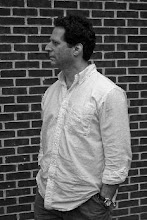 Photo by lamentables
Photo by lamentablesThe bookstore has a whole section labeled "Self-Help." I wonder—do other countries have such a section in the bookstore, or even such a concept? The Oxford English Dictionary (on-line) gives the earliest citation for the term "self-help" from 1834, so certainly the concept could have spread world-wide by now. And yet to me, the term self-help seems quintessentially American, bound up with Horatio Alger and the whole "all men are created equal" thing. Surely people living in monarchical France did not believe that the difference between the king and a peasant was a mere matter of pulling oneself up by one's bootstraps.
In the broader sense of any book with an educational purpose, "self-help" books would be available in any country. The broader definition including also books on diet, exercise, fashion, relationships, organizational skills, etc.
But the hard-core self-help book focuses on no specific aspect of life but simply exhorts (according to whatever precepts): be better. Get more. A fairly well known example would be Stephen Covey's The 7 Habits of Highly Effective People. What these people are effective at is not specified.
(Disclaimer: These are example for discussion, nothing more. I neither to endorse nor criticize.)
I have mixed feelings about the self-help industry. Surely the great majority is snake oil. As Chip Overclock says, "90% of everything I say is crap because 90% of everything is crap." And yet clearly some people are more effective than others, sometimes by huge margins. It's not unreasonable to think that "effectiveness" might be a learnable skill. So there could be that other 10% out there that actually has some value.
Besides taking a normal interest in improving my own quality of life, I have a general fascination with art or science of self-help in and of itself, with the human being's ability to remake himself or herself. There are "self-made men." There are no self-made animals. This is reflected in several of my previous blog posts.
And so I have noticed that self-help works fall along a certain spectrum—indeed most are one end of the spectrum or the other. On one end, the target audience is dysfunctional people, or at least at those with low self-esteem. These products promise to take you from pathetic to normal.
For example, there is Ed Wheat's How to Save your Marriage Alone. I haven't read the book—haven't even peeked inside. But clearly Wheat is not targeting those who feel satisfied and secure in their marriages. (By the way, if you want to guarantee yourself an interesting evening, come home and announce to your spouse that you are going to save your marriage alone).
Or consider Jackie Warner's This is Why You're Fat. Been looking for the perfect birthday gift for your wife? Ha-ha. Who buys a book with a title like this? Maybe fat people, maybe thin people, but surely no one with a healthy body image.
And then there is the elder statesman of self-help books, the "Big Book" of Alcoholics Anonymous. I'm no expert on this, but it seems to me that the twelve-step program probably considers it "success" if an alcoholic reaches the same point of sobriety where the average non-alcoholic starts out.
This is one end of the spectrum. At the other end are self-help books that promise to take one from ordinary to extraordinary. For example, consider Bill Phillips' Body for Life. Bill is a bodybuilder and marketer of dietary supplements. His big innovation was to push the sport of bodybuilding beyond a small cadre of enthusiasts to become an avocation for anyone who aspires. Body for Life is both a diet and exercise book, but the point is not to go from "fat" to "normal." Whether your preferred physique is the body-builder's type or something else, Bill doesn't want you to settle for "normal."
It would be instructive to compare Donald Asher's How to Get Any Job: Life Launch and Re-Launch for Everyone Under 30 (or How to Avoid Living in Your Parents' Basement) with Tim Ferriss's The 4-Hour Workweek. Asher's book appears targeted at people who want jobs but don't have them, and probably feel a job is necessary to become a full-fledged adult—a widespread sentiment, and one I mostly agree with. The goal of Asher's book is to become "normal." Ferriss's book is mostly targeted at people with jobs, and says essentially: jobs are for "normal" suckers. Give your job up and spend your time on what you really want to do. Ferriss's book is all about leaving "normal" behind.
I point out that in not a few cases, people have managed to take themselves all the way from pathetic to extraordinary. It makes sense, in a way. Once you get in the habit of self-betterment, why stop?
I point out that in not a few cases, people have managed to take themselves all the way from pathetic to extraordinary. It makes sense, in a way. Once you get in the habit of self-betterment, why stop?




No comments:
Post a Comment